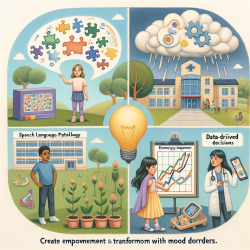The landscape of the social work profession is evolving as more licensed professionals continue to work beyond the age of 60. This trend presents a unique opportunity to learn from seasoned practitioners who have navigated the complexities of the field for decades. The research article "Productive Aging in the Social Work Profession: A Comparison of Licensed Workers 60 Years and Older with Their Younger Counterparts" sheds light on how older social workers thrive and what younger professionals can glean from their experiences.
Understanding Productive Aging
The concept of productive aging challenges the notion that older adults are merely consumers of resources. Instead, it emphasizes their role as active contributors to society. This perspective is particularly relevant in social work, where the wisdom and experience of older professionals can significantly impact practice outcomes.
The study highlights several key findings:
- Higher Compassion Satisfaction: Older social workers report significantly higher levels of compassion satisfaction compared to their younger peers. This satisfaction stems from the positive feelings derived from helping others and contributes to a more fulfilling career.
- Lower Workplace Stress: Despite facing more serious physical health challenges, older social workers experience lower levels of workplace stress. This resilience may be attributed to their extensive experience and ability to navigate workplace dynamics effectively.
- A Positive Outlook on Physical Health: Interestingly, older workers rate their physical health more favorably than younger counterparts, despite reporting more serious health issues. This optimistic outlook is a testament to their adaptability and coping mechanisms.
Lessons for Younger Practitioners
Younger social workers can benefit immensely from understanding and implementing strategies used by their older colleagues:
- Cultivate Compassion Satisfaction: Engage in reflective practices that highlight the positive impact of your work. Recognize the value you bring to clients' lives and celebrate small victories.
- Manage Workplace Stress: Develop resilience by learning stress management techniques such as mindfulness, time management, and seeking support from peers or supervisors.
- Nurture a Positive Health Perspective: Focus on maintaining a healthy lifestyle and adopt a proactive approach to managing any health issues. A positive mindset can enhance overall well-being.
The Role of Experience
The study also underscores the importance of experience in shaping a successful career in social work. Older professionals often have a wealth of knowledge that can guide decision-making processes and improve client outcomes. Younger practitioners should seek mentorship opportunities with seasoned colleagues to gain insights into effective practice strategies.
The Future of Social Work
The aging workforce presents both challenges and opportunities for the field of social work. As more professionals extend their careers beyond traditional retirement age, organizations must adapt to support this demographic shift. Creating inclusive work environments that value the contributions of all age groups will be crucial for fostering a multigenerational workforce.
This research highlights the need for continued exploration into how age impacts professional experiences in social work. By understanding these dynamics, we can develop strategies that leverage the strengths of both older and younger practitioners, ultimately enhancing service delivery and client outcomes.
If you're interested in further exploring this topic, consider delving into the original research paper: Productive Aging in the Social Work Profession: A Comparison of Licensed Workers 60 Years and Older with Their Younger Counterparts.










